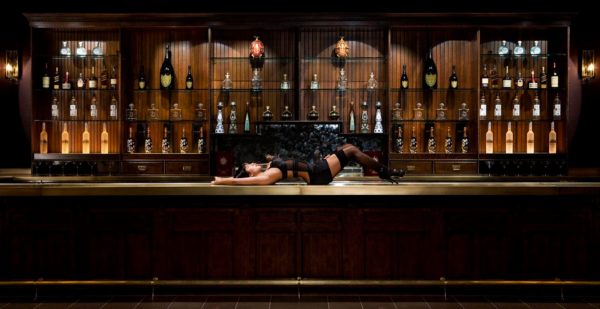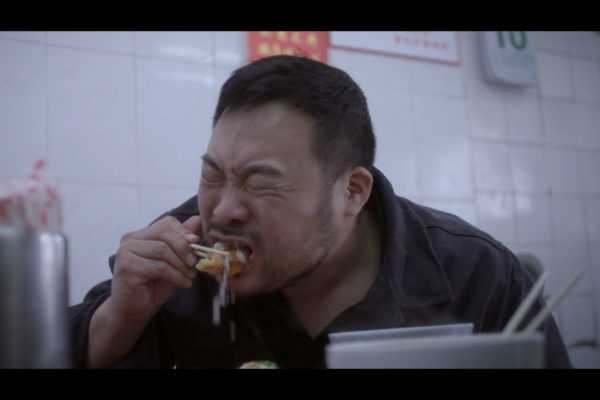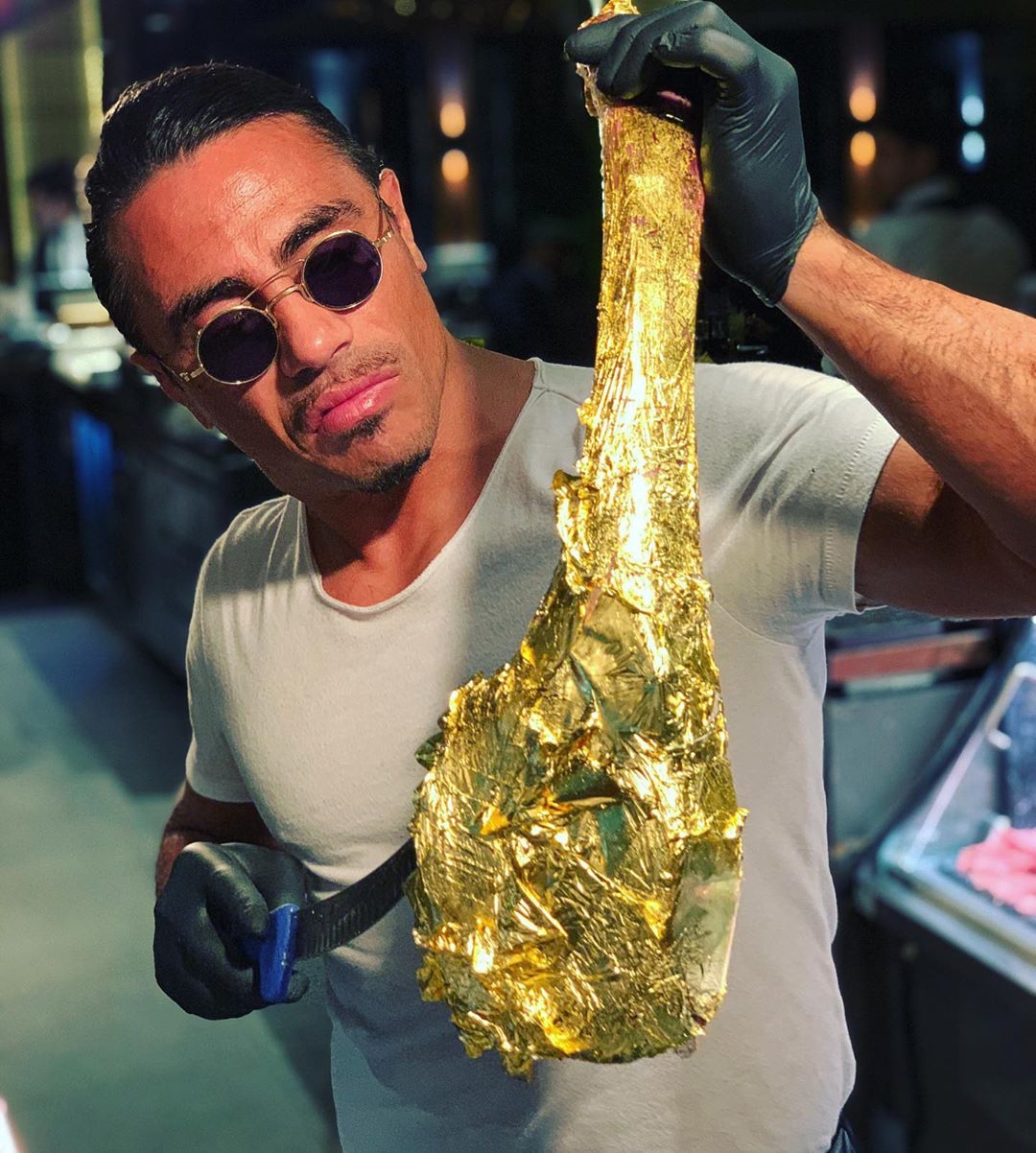In an episode of “Ugly Delicious,” chef David Chang and comedian Ali Wong are having a conversation at Din Tai Fung Restaurant where they refer to the liquid that squirts out of a soup dumpling as “dumpling jizz.” Later in the show, we see it physically manifested when Chef Chang sensually bites into a Sheng Jian Bao and hot broth gushes like a geyser from the swollen dumpling. He groans euphorically while the juices roll down his chin. It’s hard not to feel a little uncomfortable witnessing this epicurean money shot, but we can’t turn it off or we’ll miss the noods.
Satisfying hunger has always inherently been a restaurant’s primary concern, but modern diners—raised on a steady diet of food porn—have more carnal appetites. The dining experience has morphed into an event that must be captured to maximize enjoyment. We objectify our food—and the chefs who make it—scrutinizing the dinner table with our smartphone cameras like forensic detectives preserving evidence at a crime scene. Eating is secondary to achieving the perfect Instagram-able moment.
No restaurateur has exploited these voyeuristic impulses better than the swarthy Turkish chef slash Steak Whisperer slash viral YouTube sensation Nusret Gökçe—more commonly known in social media circles as “Salt Bae.” Legions of lusty fans line up from New York to Miami to Istanbul for the privilege of having Chef Gökçe wield his phallic sword and carve their steak. Before they can enjoy it, however, they must wait for him to climax—shooting his proverbial load—in the form of snowy white salt crystals erotically cascading all over their sizzling meat. It might not seem totally out of place if he also cuddled and shared a cigarette with his adoring fans after the check comes.

The popularity of open kitchens in the early Oughts may have foreshadowed the dynamic of Chef as “Bae.” A chef’s work was no longer shrouded in secrecy. Television cooking shows had flung the kitchen doors open and invited diners in to see how the sausage is made. Guests were now privy to what was happening backstage and restaurant experiences had transformed into something meant to be observed. Long before social media, dining out had already become a voyeuristic experience. We learned that having someone cook for us, like sex, is even more fun when we get to watch.
The cumulative effect of objectifying restaurants is akin to the effect of consuming too much pornography—entertaining these impulses obscures one’s actual desire and makes satisfaction difficult to achieve without perversion. Increasingly, people don’t enjoy restaurants as much as they fetishize them. Whether they realize it or not, most of today’s diners measure enjoyment by arousal rather than nourishment. We talk about our restaurant experiences this way, too—“The food was good but nothing I ate was orgasmic.”
In the midst of this narcissistic spectacle, industry professionals have had to accept the unwanted role of being fluffers for our guests. Metaphorically speaking, we dedicate an exorbitant amount of energy keeping our guests hard and wet, instead of quenched and full. Tableside service has become increasingly overstimulating as servers mug for the camera. Prostituting ourselves in this way has resulted in a difficult predicament—we know that allowing guests to take video and flash photography in the dining room is distracting but choosing not to cater to voyeuristic patrons may be construed as inhospitable.

One night, I colorfully recited the dessert specials for a guest who interrupted me mid-sentence, reached into her purse, discharged her phone and asked me to repeat myself for the camera. When I declined, she reacted as though I was being rude. Because I was designated to serve her table meant I shouldn’t have say over whether she could broadcast my image on social media. She made me feel like a sex doll—a pulseless facilitator of her urges—and it ruined the moment for her when I wouldn’t just lay there.
This scenario also illustrates the way in which technology has eroded the personal connection that once comforted us about restaurants. It’s even more disconcerting to imagine a remote and distant future where embedded cameras in wearable devices will turn eye contact into video. Restaurants will deploy augmented reality applications as they search for ways of using tech to make guests’ experiences more immersive. Over time, these initiatives will only further exacerbate the problem of our objectifying restaurants, dissolving what’s left of the humanity in them where we once found sanctuary.
In this new world, traditional means of administering hospitality have become inert. For restaurant professionals, attentive service has always been defined by ascertaining the needs of our guests and doing everything necessary to fulfill them. But how do we forge a relationship with an audience that can only connect with us superficially? Hospitality professionals—perhaps with the exception of Salt Bae—want to be appreciated for the sacrifice that goes into pleasing others, for our minds not our bodies. Unfortunately, our guests are too horny to notice.

